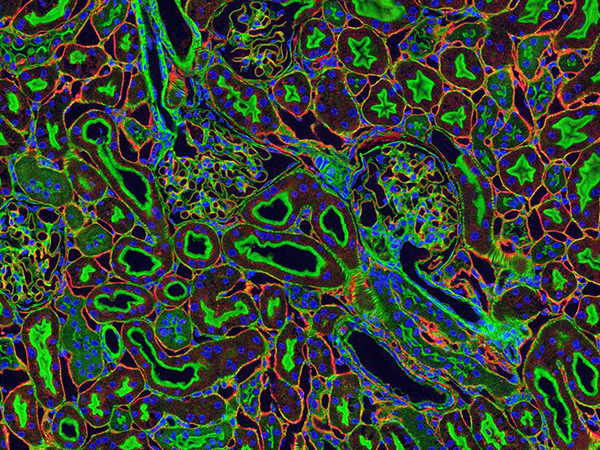Combining Two Immunotherapies Shows Promise
In an early-phase trial, investigators study whether combining immunotherapies expands “tumor-specific immune activation.”

A small phase Ib study of a combination of an investigational cytokine-based immunotherapy and the checkpoint inhibitor pembrolizumab (Keytruda) showed promise in patients with advanced renal cell carcinoma, the most common form of kidney cancer.
Two of the eight patients had complete responses and two others had partial responses with 92 and 77 percent reductions of their tumors after 10 to 15 months. The results of the trial were presented at the Second CRI-CIMT-EATT-AACR International Cancer Immunotherapy Conference held in New York City Sept. 25-28, 2016.
“Immunotherapy has improved the prospects for many cancer patients by providing long-term benefit, but not all patients respond to the currently available immuno-oncology drugs,” said Aung Naing, MD, an associate professor in the department of Investigational Cancer Therapeutics at The University of Texas MD Anderson Cancer Center in Houston. ‘Rational combinations of immune therapies are likely to expand the tumor-specific immune activation and lead to more durable tumor responses.”
Dr. Naing and colleagues are investigating a novel immunotherapy, AM0010, that has specific immune-stimulating effects that induce the activation, proliferation, and survival of certain T cells, the physician-scientist explained. The targets of AM0010 and pembrolizumab are both present on those T cells, he explained.
“In this clinical trial, we found that the two immunotherapies were well tolerated, without overlapping toxicity or severe autoimmunity, while providing strong antitumor responses,” Dr. Naing said. “In addition, we detected new, expanding T-cell clones in the blood of all patients who received AM0010. Many of those T-cell clones were not detectable before treatment. This is reminiscent of tumor-specific vaccination.”
The most common side effects associated with AM0010 were anemia, thrombocytopenia, and fatigue, which were all manageable. Importantly, AM0010 did not lead to autoimmune side effects.
The weapons used by this type of T cells in killing cancer cells are the cytotoxic molecules – granzymes, FasL and lymphotoxin beta. With AM0010 treatment, the levels of these cytotoxic molecules were elevated in the serum of the patients, which provides further evidence of the systemic activation of the cytotoxic arm of the immune system, according to Dr. Naing.
Effects such as the elevation of cytotoxic molecules and the expansion of T-cell clones in the blood were also observed in patients from other cohorts in this clinical trial in which AM0010 was tested as monotherapy or in combination with chemotherapies.
The main limitation is that this is a study with a small number of patients, said Dr. Naing.
The study was funded by ARMO BioSciences Inc. Dr. Naing receives travel reimbursement for professional conference presentations of studies relevant to ARMO-developed therapies.
About the CRI-CIMT-EATI-AACR International Cancer Immunotherapy Conference
The International Cancer Immunotherapy Conference covers all areas of inquiry in cancer immunology and immunotherapy. Launched in 2015, the meeting is jointly sponsored by the Cancer Research Institute (CRI), the Association for Cancer Immunotherapy (CIMT), the European Academy of Tumor Immunology (EATI), and the American Association for Cancer Research (AACR).
